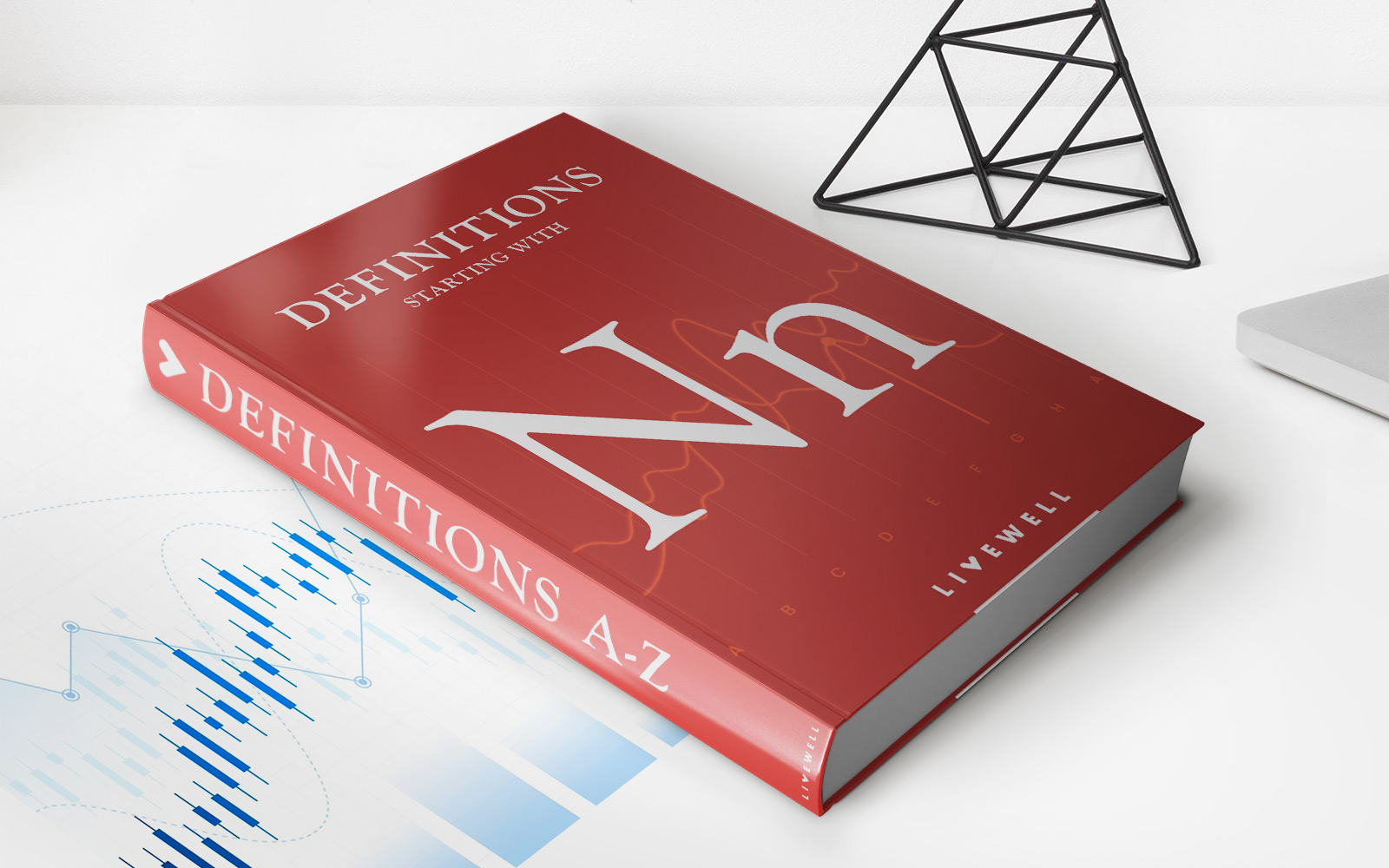

Finance
What Does Cash Credit Mean
Published: January 12, 2024
Learn the meaning of cash credit in finance and how it can impact your financial situation. Gain insights into managing cash flow and credit wisely.
(Many of the links in this article redirect to a specific reviewed product. Your purchase of these products through affiliate links helps to generate commission for LiveWell, at no extra cost. Learn more)
Table of Contents
Introduction
When it comes to managing one’s finances, having access to credit can be a valuable asset. Whether it’s for personal or business needs, credit provides individuals and organizations with the necessary funds to achieve their goals. One type of credit that is commonly used is cash credit.
Cash credit refers to a form of borrowing in which a financial institution, usually a bank, extends a line of credit to an individual or business. Unlike other types of loans that have a specific purpose, cash credit provides borrowers with the flexibility to withdraw funds as needed, up to a predetermined credit limit. This makes it an attractive option for those who require immediate access to funds for various expenses.
In this article, we will delve into the definition, features, advantages, and disadvantages of cash credit. We will also explore the application process, compare it to other types of credit, discuss the risks involved, and provide examples of how cash credit can be used in real-life scenarios. By the end, you will have a comprehensive understanding of what cash credit entails and how it can be effectively utilized.
Definition of Cash Credit
Cash credit is a type of borrowing arrangement offered by financial institutions, typically banks, that allows individuals or businesses to access funds up to a designated credit limit. It is considered a revolving form of credit, meaning that as the borrower repays the borrowed amount, they can withdraw money again, within the predetermined credit limit. Unlike loans that require a fixed repayment schedule, cash credit provides flexibility in terms of repayment, with interest charged only on the amount actually used.
Cash credit is often used for short-term financing needs, such as managing cash flow gaps, unexpected expenses, or taking advantage of business opportunities. It provides borrowers with immediate access to funds, eliminating the need to go through the application process every time they require financing. The credit limit, interest rate, and repayment terms are typically determined based on the borrower’s creditworthiness, financial history, and relationship with the lender.
One distinguishing factor of cash credit is that it is usually secured by collateral. This means that borrowers need to provide an asset, such as inventory, accounts receivable, or property, as collateral to secure the credit line. This provides assurance to the lender that they can recover their funds in the event that the borrower fails to repay the debt.
It is important to note that cash credit is distinct from credit cards or personal lines of credit. While credit cards provide a predetermined credit limit that can be used for various purchases and expenses, cash credit is specifically designed to provide access to cash. Furthermore, personal lines of credit may not require collateral, and their credit limits are often lower compared to cash credit.
Overall, cash credit offers borrowers the flexibility and convenience of accessing funds when needed, making it a popular choice for individuals and businesses seeking short-term financing solutions. However, it is essential to carefully consider the terms and conditions, as well as the interest rates and fees associated with cash credit, to ensure that it aligns with your financial needs and objectives.
Features of Cash Credit
Cash credit comes with several distinctive features that make it a flexible and convenient financing option for individuals and businesses. Let’s take a closer look at some of its key features:
- Revolving Credit: Cash credit operates on a revolving credit system, which means that as the borrower repays the borrowed amount, they can withdraw funds again within the approved credit limit. This provides borrowers with ongoing access to funds, eliminating the need to reapply for credit each time they require financing.
- Withdrawals as Needed: With cash credit, borrowers have the freedom to withdraw funds as needed, up to the approved credit limit. This allows for greater flexibility in managing expenses and gives borrowers control over their cash flow.
- Interest on Utilized Amount: Unlike traditional loans, where interest is charged on the entire loan amount, cash credit interest is calculated only on the amount withdrawn by the borrower. This means that borrowers only pay interest on what they use, potentially reducing the overall cost of borrowing.
- Secured by Collateral: Cash credit is typically secured by collateral, such as assets or inventory. This provides the lender with an added layer of security, as they can seize and sell the collateral in the event that the borrower defaults on their payments.
- Flexible Repayment Terms: Cash credit offers flexibility in terms of repayment. While it is important to make regular payments to maintain a good credit standing, borrowers have the option to repay the borrowed amount over a longer period, depending on the terms agreed upon with the lender.
- Higher Credit Limits: Compared to personal lines of credit or credit cards, cash credit often allows for higher credit limits. The maximum credit limit is determined based on the borrower’s creditworthiness, financial history, and the value of the collateral provided.
These features make cash credit an attractive option for those who need immediate access to funds and prefer the flexibility of borrowing as needed. However, it is important to remain mindful of the terms and conditions set by the lender and to assess your repayment capabilities before committing to cash credit.
Advantages of Cash Credit
Cash credit offers several advantages for individuals and businesses who are in need of short-term financing. Let’s explore some of the key advantages of utilizing cash credit:
- Flexibility: Cash credit provides borrowers with the flexibility to access funds as and when needed. This allows individuals and businesses to manage their cash flow effectively, especially during times of financial uncertainty or unexpected expenses.
- Easy Access to Funds: With cash credit, borrowers have immediate access to funds, eliminating the need to go through a lengthy loan application process. This can be particularly beneficial in emergency situations or when quick financing is required for business opportunities.
- Variable Interest Payments: Unlike traditional loans that charge interest on the entire loan amount, cash credit calculates interest only on the amount actually utilized. This means that borrowers can potentially save on interest costs by repaying the borrowed amount quickly.
- Higher Credit Limits: Cash credit often provides higher credit limits compared to other types of credit, such as personal lines of credit or credit cards. This allows borrowers to access larger amounts of funds, enabling them to meet their financial objectives more effectively.
- Better Cash Flow Management: By utilizing cash credit, businesses can better manage their cash flows. They can cover their operating expenses, pay employees, and handle any unforeseen financial obligations while waiting for incoming cash from their customers.
- Opportunity for Growth: With cash credit, businesses can seize opportunities for growth and expansion. They can invest in new equipment, expand their product lines, or launch marketing campaigns to attract more customers. Cash credit provides the necessary funds to fuel growth and take advantage of market opportunities.
These advantages make cash credit an attractive financing option for individuals and businesses with short-term funding needs. However, it is important to carefully consider the terms and conditions, including interest rates and fees, associated with cash credit to ensure it aligns with your financial goals and capabilities.
Disadvantages of Cash Credit
While cash credit offers flexibility and convenience, it is important to be aware of the potential disadvantages and risks associated with this type of borrowing. Here are some of the key disadvantages of cash credit:
- Collateral Requirement: Cash credit typically requires borrowers to provide collateral, such as assets or inventory, to secure the line of credit. This means that if the borrower defaults on their payments, the lender has the right to seize and sell the collateral to recover the outstanding debt.
- Higher Interest Rates: Cash credit often comes with higher interest rates compared to other forms of borrowing, such as personal loans or home equity lines of credit. Borrowers should carefully consider the costs associated with cash credit and assess whether the benefits outweigh the interest charges.
- Potential Overborrowing: The easy access to funds with cash credit can sometimes lead to overborrowing. Without proper financial management, borrowers may find themselves accumulating excessive debt that becomes challenging to repay.
- Risk of Default: Since cash credit is a form of revolving credit, borrowers need to make regular repayments to avoid default. Failure to meet the repayment obligations can result in negative consequences, such as damaged credit scores, additional fees, and potential legal actions by the lender.
- Dependency on Collateral Value: The credit limit for cash credit is often determined by the value of the collateral provided. If the value of the collateral decreases, the credit limit may be reduced, limiting the borrower’s access to funds.
- Complexity of Terms: Cash credit agreements can have complex terms and conditions that may be challenging to understand for borrowers who are not familiar with financial jargon. It is crucial to carefully review the terms of the agreement and seek professional advice if needed.
Understanding the potential disadvantages of cash credit can help borrowers make informed decisions about whether it is the most suitable financing option for their needs. It is important to weigh the advantages against the disadvantages and consider alternative financing options before committing to cash credit.
Application Process for Cash Credit
The application process for cash credit typically involves several steps, starting with the borrower’s evaluation of their financial needs and readiness to provide the necessary documentation. While the specific requirements may vary between financial institutions, the following steps provide a general overview of the typical application process for cash credit:
- Evaluate Financial Needs: Before applying for cash credit, assess your financial needs and determine the amount of credit you require. Consider your cash flow requirements, anticipated expenses, and the purpose for which you need the funds.
- Research Lenders: Explore different financial institutions that offer cash credit and compare their terms, interest rates, fees, and customer reviews. This will help you select a lender that best aligns with your needs and financial goals.
- Prepare Documentation: Gather the necessary documentation required by the lender, which may include proof of identity, proof of address, income statements, financial statements, and details of the collateral you will provide. Ensure that all documents are up-to-date and organized.
- Submit Application: Complete the application form provided by the lender. Be accurate and truthful in providing your personal and financial information. Submit the application along with the required documentation to the lender for evaluation.
- Evaluation and Approval: The lender will review your application, assess your creditworthiness, and evaluate the value of the collateral you are providing. They may also consider your financial history, credit score, and existing debts. If your application meets their criteria, you will receive approval for the cash credit.
- Collateral Assessment: Once approved, the lender will assess the value and condition of the collateral you have offered as security for the cash credit. They will determine the credit limit based on this evaluation. If the value of the collateral does not meet their requirements, the credit limit may be adjusted accordingly.
- Agreement Signing: If everything meets the lender’s requirements, you will be required to sign a loan agreement that outlines the terms and conditions of the cash credit, including the interest rate, repayment schedule, fees, and consequences of default. Read the agreement carefully and seek clarification on any terms that you do not understand before signing.
- Accessing the Funds: Once the loan agreement is signed, you can access the funds as needed, up to the approved credit limit. The lender will provide you with instructions on how to withdraw the funds, whether through a designated account, check, or other agreed-upon methods.
It is important to carefully evaluate your financial needs and consider the terms and conditions of the cash credit before proceeding with the application process. Comparing multiple lenders and seeking professional advice can help you make an informed decision and choose the best cash credit option for your specific circumstances.
Comparison with other Types of Credit
When considering cash credit as a financing option, it is important to understand how it compares to other types of credit. Here, we will compare cash credit with personal loans, credit cards, and lines of credit to highlight the key differences:
- Personal Loans: Unlike cash credit, personal loans provide borrowers with a lump sum payment at the beginning of the loan term, which is then repaid in fixed installments over a specific period. Personal loans are often unsecured, meaning they do not require collateral, but interest rates may be higher compared to cash credit. Personal loans are more suitable for larger expenses with a defined purpose, such as home renovations or debt consolidation.
- Credit Cards: Credit cards provide a pre-approved credit limit that allows borrowers to make purchases or access cash advances. The borrowed amount must be repaid within the billing cycle, with interest charged on any outstanding balance. Credit cards offer convenience and flexibility, but interest rates tend to be higher than cash credit. Credit cards are better suited for smaller, day-to-day expenses and building credit history.
- Lines of Credit: A line of credit is a flexible form of borrowing that provides borrowers with access to funds up to a predetermined credit limit. Similar to cash credit, interest is charged only on the amount utilized. However, lines of credit can be unsecured, meaning collateral may not be required. Lines of credit are ideal for ongoing or unpredictable financing needs, such as covering operating expenses or managing cash flow for a business.
Compared to personal loans, credit cards, and lines of credit, cash credit stands out as a suitable option for short-term financing needs, rapid access to funds, and higher credit limits. Additionally, with cash credit, interest is only charged on the amount actually utilized, potentially making it a cost-effective solution. However, it is crucial to assess your specific requirements, financial situation, and risk tolerance before deciding on the most appropriate form of credit.
Risks and Considerations of Cash Credit
While cash credit can be a convenient financing option, it is important to be aware of the risks and considerations associated with this type of credit. By understanding these factors, borrowers can make informed decisions and manage their cash credit effectively. Here are some key considerations:
- Default and Collateral: One of the significant risks of cash credit is the potential for default. If borrowers fail to make timely repayments, they risk damaging their credit scores and facing legal actions by the lender. Additionally, the collateral provided may be at stake if the debt remains unpaid, leading to potential loss of assets.
- Interest Rates: While cash credit offers flexibility and immediate access to funds, it often comes with higher interest rates compared to other forms of borrowing. Borrowers should carefully consider the impact of interest charges while planning their repayment strategy. Failure to manage interest payments can lead to significant debt accumulation.
- Overborrowing: Easy access to cash through cash credit can sometimes tempt borrowers to overborrow. It is crucial to assess and borrow only the amount required to avoid accumulating excessive debt that may become unmanageable. Careful financial planning and budgeting are necessary to avoid falling into a cycle of debt.
- Fluctuating Credit Limits: The credit limit of cash credit is determined based on the value of the collateral provided. The credit limit may fluctuate if the value of the collateral changes over time. Borrowers should consider this factor while planning their financial needs and have contingency plans to manage potential credit limit adjustments.
- Complex Terms and Conditions: Cash credit agreements can have complex terms and conditions, including fees, penalties, and repayment schedules. Borrowers should carefully review and understand the terms before signing the agreement. Seek clarification on any ambiguous or unclear clauses and ensure that you are comfortable with the terms proposed by your lender.
- Repayment Obligations: It is important to commit to regular and timely repayments to maintain a good credit standing and avoid default. Failure to meet repayment obligations may result in additional fees, a negative impact on your credit score, and potential legal consequences.
Considering these risks and factors is essential before opting for cash credit. Adequate financial planning, responsible borrowing, and diligent repayment practices can help borrowers mitigate risks and effectively manage their cash credit obligations. It is advisable to seek advice from financial professionals or credit counselors to ensure your decision aligns with your financial goals and capabilities.
Examples of Cash Credit Usage
Cash credit is a versatile financing option that can be utilized in various situations, both for personal and business purposes. Here are some examples of how cash credit can be effectively used:
- Business Operations: Cash credit can provide businesses with the necessary funds to cover day-to-day operating expenses, such as payroll, inventory purchases, and rent payments. It can help smooth out cash flow fluctuations, ensuring that essential business operations continue without disruption.
- Emergency Expenses: When faced with unexpected expenses, such as medical bills, home repairs, or car repairs, cash credit can provide immediate access to funds. It allows individuals to address these emergencies without depleting their savings or disrupting their financial stability.
- Investment Opportunities: Cash credit can be used to seize investment opportunities that have the potential for high returns. For example, a small business owner may come across an opportunity to purchase inventory at a discounted price, but may not have sufficient funds available. Cash credit can bridge the gap and allow the business owner to take advantage of the opportunity.
- Seasonal Business Needs: Businesses with seasonal demand, such as retail stores or tourism-related businesses, can utilize cash credit to manage their cash flow during slower months. It provides them with the necessary funds to cover expenses and maintain operations until the busy season arrives.
- Working Capital Management: Cash credit can support businesses in managing their working capital effectively. It allows them to fund their ongoing operations, pursue growth opportunities, and maintain a healthy cash flow while waiting for receivables to be collected.
- Debt Consolidation: Cash credit can also be used for debt consolidation purposes. Borrowers with multiple high-interest debts can use cash credit to pay off those debts and consolidate them into a single loan with more favorable terms. This can help simplify debt management and potentially save money on interest charges.
These examples demonstrate the wide range of uses for cash credit. However, it is important to carefully assess your financial situation, consider the costs and risks associated with borrowing, and determine whether cash credit aligns with your specific goals and needs before deciding to utilize it in any of these scenarios.
Conclusion
Cash credit is a flexible and convenient form of borrowing that provides individuals and businesses with immediate access to funds. It offers several advantages, such as flexibility in withdrawals, variable interest payments, and higher credit limits. However, it is important to carefully consider the risks and drawbacks associated with cash credit, such as collateral requirements, potential default, and higher interest rates. By evaluating these factors, borrowers can make informed decisions and effectively manage their cash credit obligations.
When applying for cash credit, it is crucial to assess your financial needs, research different lenders, and gather the necessary documentation. Understanding the terms and conditions, including interest rates and repayment terms, is essential before signing a loan agreement. It is also important to remain mindful of responsible borrowing practices, such as avoiding overborrowing and making timely repayments to maintain a positive credit standing.
Cash credit can be used in a variety of situations, from managing day-to-day business operations to handling emergency expenses or pursuing investment opportunities. By carefully considering your financial objectives and needs, you can determine whether cash credit aligns with your goals and serves as the right financing solution for your specific circumstances.
Remember to seek professional advice if needed and compare different lenders to ensure you choose the cash credit option that best suits your financial requirements. With proper planning and responsible borrowing, cash credit can be a valuable tool in managing your finances and achieving your personal and business goals.














